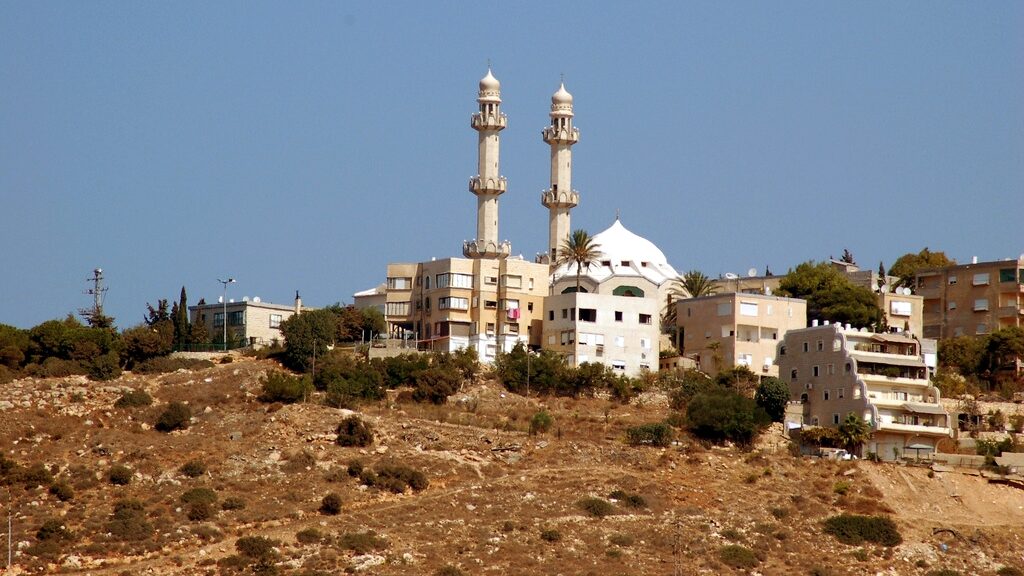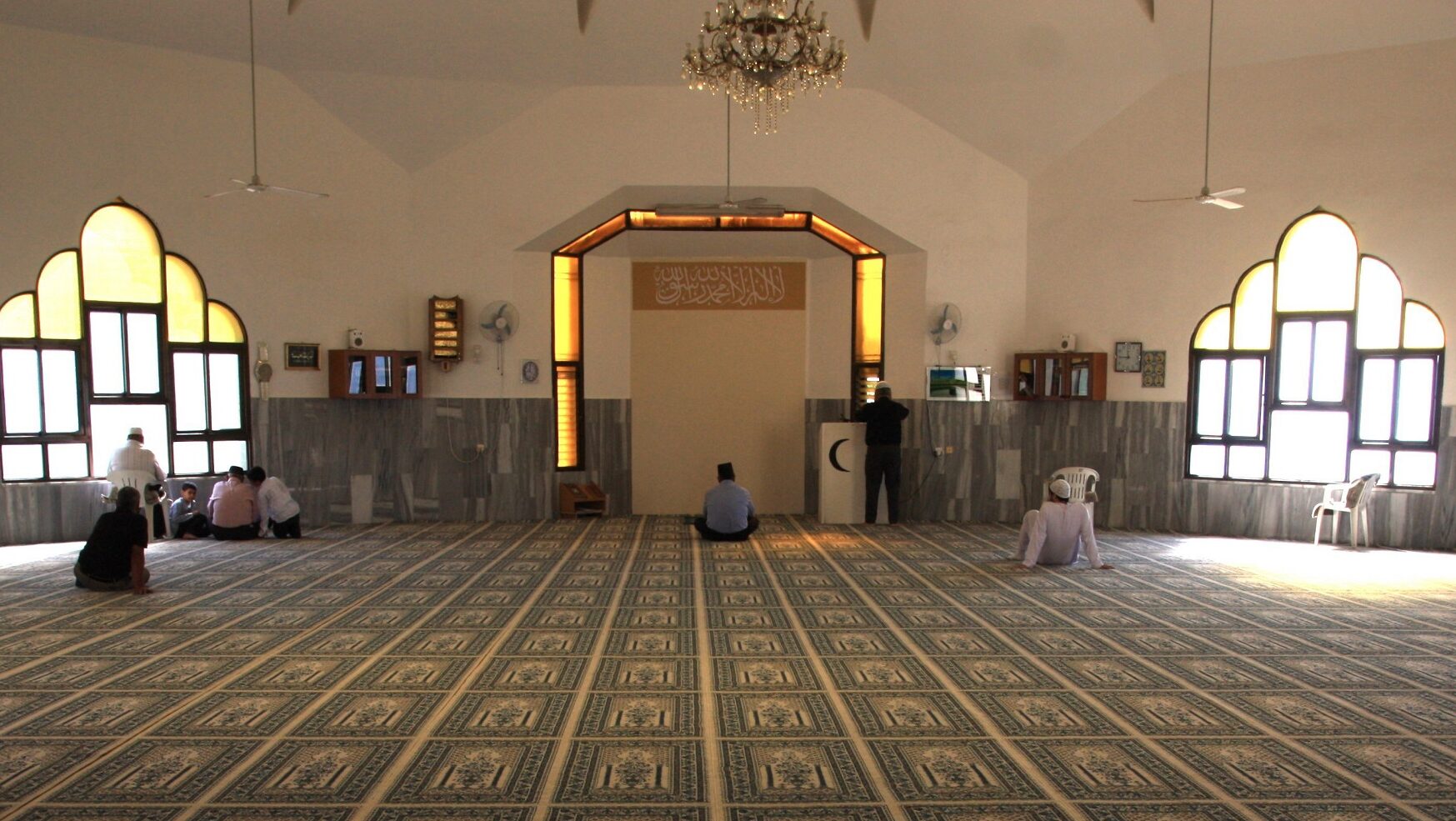Israel’s Ahmadiyya Community Debuts Hebrew Quran Translation
At their annual conference, Ahmadi Muslims emphasize need for tolerance, love, and unity, and correcting misconceptions about Islam
The Ahmadiyya Muslim community released a new, Hebrew-language translation of the Quran during their recent annual conference.
While the community has translated the Muslim holy book into over 70 languages, this was their first Hebrew edition.
According to Muad Odeh, Ahmadi secretary general, the new translation is meant to “bring Islam” to non-Muslims and expose Hebrew speakers to the messages and teachings of Islam.
Many people are waiting for a messiah who will kill everyone but those who believe in him. We don’t believe God is brutal like this.
Imad al-Masri, an Ahmadi imam, told The Media Line that the Hebrew-language version has been in the works since 1989. Its goal is to address misconceptions of Islam, including misunderstandings of the word “jihad.”
Although many use the term to describe violence against nonbelievers, al-Masri says this is antithetical to the Quran.
“Many people are waiting for a messiah who will kill everyone but those who believe in him. We don’t believe God is brutal like this,” al-Masri said. Instead, Ahmadis believe “the messiah has come to spread love around the world.”
This holiday season, give to:
Truth and understanding
The Media Line's intrepid correspondents are in Israel, Gaza, Lebanon, Syria and Pakistan providing first-person reporting.
They all said they cover it.
We see it.
We report with just one agenda: the truth.


In addition to addressing misconceptions within Islam, al-Masri said that this translation of the Quran into Hebrew is meant to promote understanding between Arabs and Jews.
This translation of the holy Quran is an attempt from us to say, ‘You, our cousins, our brothers from the Jewish community, our colleagues on this land, please come, let us learn about each other.’ Because as long as we are not knowing anything about each other, we will remain enemies.
“This translation of the holy Quran is an attempt from us to say, ‘You, our cousins, our brothers from the Jewish community, our colleagues on this land, please come, let us learn about each other.’ Because as long as we are not knowing anything about each other, we will remain enemies,” said al-Masri.
Over 2,000 Ahmadis live in Israel, a fraction of Israel’s 1.8 million Muslim citizens, many of whom identify as Palestinian Arabs. The community is largely located in the Kababir neighborhood of Haifa, and like most Muslims and Arabs in Israel, they do not serve in the army. Worldwide, some 10 to 20 million Ahmadis live in 200 countries, with the largest concentration in Pakistan.

Mahmood Mosque, Kababir, Haifa, Israel, Oct. 7, 2007, (David King/Creative Commons)
Ahmadis belong to a Muslim sect that diverged from the Sunni tradition. They believe the messiah was Mirza Ghulam Ahmad, a religious leader who founded the Ahmadi community in Punjab in 1889.
Odeh said that in Israel, Ahmadi Muslims want to spread messages of justice, peace, and love.
“The motto is unity,” said Odeh. “When you unite ourselves as people, you can create lots of good things, you can create peace, you can create love, you can create understanding with each other. And that’s the essence of resolving conflicts,”
Al-Masri said the annual conference is part of a tradition that dates to the early 1900s. Its goal is to “create a spiritual environment” and “remind people always that God still exists and that without God, we will never be able to establish peace.”
The Ahmadi conference was attended by Jews, Christians, members of other Muslim communities, and atheists. The mayor of Haifa, Einat Kalisch-Rotem, told The Media Line that this mix was a testament to the city’s multicultural nature.
Tolerance, she said, is “the glue of our city.”
Over 1 million people live in the Haifa area, one quarter identifying as Arab.
Kalisch-Rotem’s plea for mutual acceptance comes at a time of heightened tension within Israel. The country has been wracked for months by strident public disagreement over the government’s plan to limit the judiciary’s powers.
At the Haifa conference, however, the focus was on Ahmadi persecution elsewhere, particularly in Pakistan, where anywhere from 2 million to 5 million Ahmadis live.
A 40-year-old Pakistani ordinance forbids Ahmadis from identifying as Muslims, calling their places of worship mosques, performing the call to prayer, or using the traditional Islamic greeting, “Assalamu alaykum” or “peace be upon you.” Additionally, in 1973, the Organization of Islamic Cooperation officially declared that the Ahmadiyya community was not linked to Islam.
One of the goals of the annual conference is to provide a space to speak about issues such as these and spread awareness among the different communities in Israel.
“When you have hatred, you don’t harm me, you harm yourself. This hatred, unfortunately, is [spreading] and unless people will be open to these solutions and be open to hearing about the Ahmadiyya community, this will continue, and I hope it will not,” al-Masri said.
Hannah Levin is a student at Northwestern University and an intern in The Media Line’s Press and Policy Student Program.

